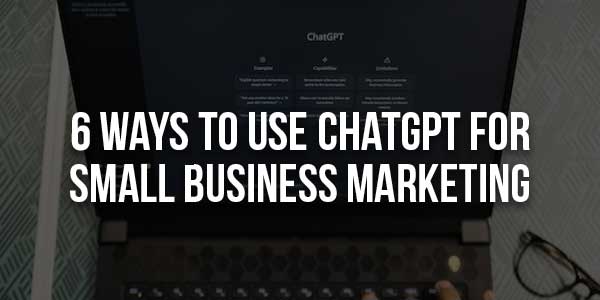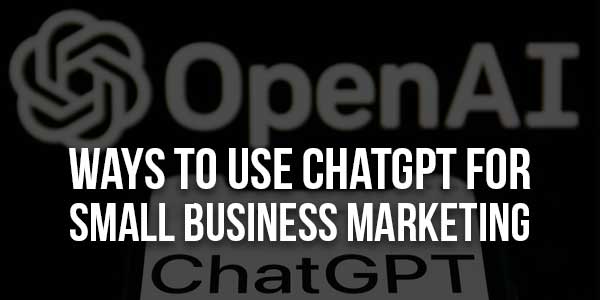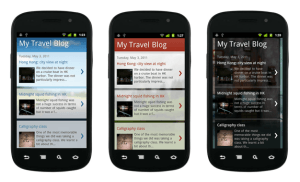
ChatGPT is a revolutionary technology that has gained popularity due to its advanced natural language processing and machine learning capabilities. This technology has numerous applications, one of which is small business marketing. Small businesses face multiple challenges, including limited budgets and resources, and need cost-effective and innovative ways to market their products and services. ChatGPT offers many ways for small businesses to market their offerings and engage with customers. This article will explore using ChatGPT to engage customers, generate leads, provide customer service, personalize marketing efforts, create content, and manage social media. By the end of this article, you will understand how ChatGPT can benefit your small business and improve your marketing efforts. Let’s dive in and discover the power of ChatGPT for Small Business Marketing!
Table of Contents
1.) Engage Customers With ChatGPT:
One of the biggest advantages of ChatGPT for small business marketing is its ability to engage with customers. With its natural language processing capabilities, ChatGPT can converse with customers, answer their questions, and provide personalized recommendations. For example, a small clothing store could use ChatGPT to ask customers about their preferences and suggest outfits based on their responses. This customized approach can increase customer satisfaction and improve brand loyalty. Another example is a small restaurant that uses ChatGPT to take orders, answer questions about the menu, and even make personalized recommendations based on the customer’s dietary preferences. By using ChatGPT for customer engagement, small businesses can create a more interactive and personalized customer experience.
2.) Use ChatGPT For Lead Generation:
ChatGPT is a powerful tool for lead generation, as it can identify potential leads by analyzing customer interactions and providing them with relevant offers or incentives. ChatGPT can also be programmed to follow up with leads and nurture them through the sales funnel. For instance, a small software company could use ChatGPT to ask website visitors about their business needs and offer a free product trial to those who express interest. ChatGPT could then follow up with those visitors via email or chat and provide them with additional resources and support. Similarly, a small consulting firm could use ChatGPT to provide personalized recommendations to visitors and encourage them to sign up for a consultation. ChatGPT could then schedule the consultation and send reminders to ensure a high conversion rate.
Another example is a small e-commerce store that uses ChatGPT to offer customized discounts to visitors who add items to their cart but don’t complete the purchase. ChatGPT could then follow up with those visitors and offer additional incentives, such as free shipping or a complimentary product, to complete the purchase.
3.) ChatGPT For Customer Service:
ChatGPT can transform customer service for small businesses by providing instant responses to customer queries and reducing the workload of small business owners. For example, a small e-commerce store could use ChatGPT to inform customers about order status, shipping details, and product returns. Similarly, a small restaurant could use ChatGPT to answer questions about menu items, reservation availability, and dietary restrictions. ChatGPT’s ability to provide 24/7 customer service can also be a game-changer for small businesses, as customers can receive instant support outside business hours. Using ChatGPT for customer service, small businesses can improve customer satisfaction and loyalty while reducing the time and resources required for traditional customer service methods.

4.) ChatGPT Is Excellent For Personalized Marketing:
ChatGPT is a powerful tool for personalized marketing, as it can analyze customer data and provide personalized recommendations and offers. For instance, a small beauty store could use ChatGPT to ask customers about their skin type and provide personalized product recommendations. Similarly, a small bookstore could use ChatGPT to recommend books based on the customer’s reading history and preferences. Another example is a small coffee shop that uses ChatGPT to offer personalized discounts to regular customers. Using ChatGPT for personalized marketing, small businesses can increase customer loyalty and retention and drive more sales.
5.) Social Media Marketing Is Easy With ChatGPT:
ChatGPT can also be used for social media marketing, as it can monitor social media platforms and respond to customer queries and comments. For example, a small restaurant could use ChatGPT to respond to customer reviews and provide personalized recommendations. Similarly, a small clothing store could use ChatGPT to answer social media questions about its products and promotions. Additionally, ChatGPT can help small businesses create social media content, such as captions and hashtags, that are optimized for engagement and reach. Using ChatGPT for social media marketing, small businesses can improve their online presence, build brand awareness, and engage with their audience more effectively.
Furthermore, ChatGPT can help small businesses stay up-to-date with the latest social media trends and adjust their marketing strategies accordingly. That can be especially beneficial for small businesses that lack the resources to hire a dedicated social media manager. Therefore, ChatGPT can help small businesses save time, reduce costs, and still achieve their marketing goals.
6.) Use Chatgpt For Content Creation:
ChatGPT can be used for content creation, generating high-quality content based on user input. For example, a small business that sells handmade jewelry could use ChatGPT to create blog posts about jewelry trends, care and maintenance, and fashion tips. Similarly, a small marketing agency could use ChatGPT to generate social media captions, blog headlines, and email subject lines. ChatGPT’s ability to understand context and tone can also help small businesses create content that resonates with their audience.
Moreover, ChatGPT can generate unique and engaging content, which can improve search engine rankings and increase website traffic. Additionally, ChatGPT can help small businesses create content optimized for voice search, which is becoming increasingly popular among consumers. By using ChatGPT for content creation, small businesses can stay ahead of the curve and provide a seamless user experience to their customers.
Conclusion:
As a small business owner, you are always looking for ways to improve your marketing efforts and drive growth for your business. Therefore, you can use ChatGPT for small business marketing as it offers powerful ways to achieve these goals. Using ChatGPT, small businesses can engage with customers, generate leads, provide customer service, personalize marketing efforts, create content, and manage social media. These six areas cover a broad range of marketing activities and can help small businesses achieve their goals cost-effectively and efficiently. Whether you’re a small clothing store looking to provide personalized recommendations or a small consulting firm looking to generate leads, ChatGPT can help you achieve your marketing objectives. So why not try ChatGPT and see how it can transform your small business marketing efforts?

 About the Author:
About the Author:
















Be the first to write a comment.